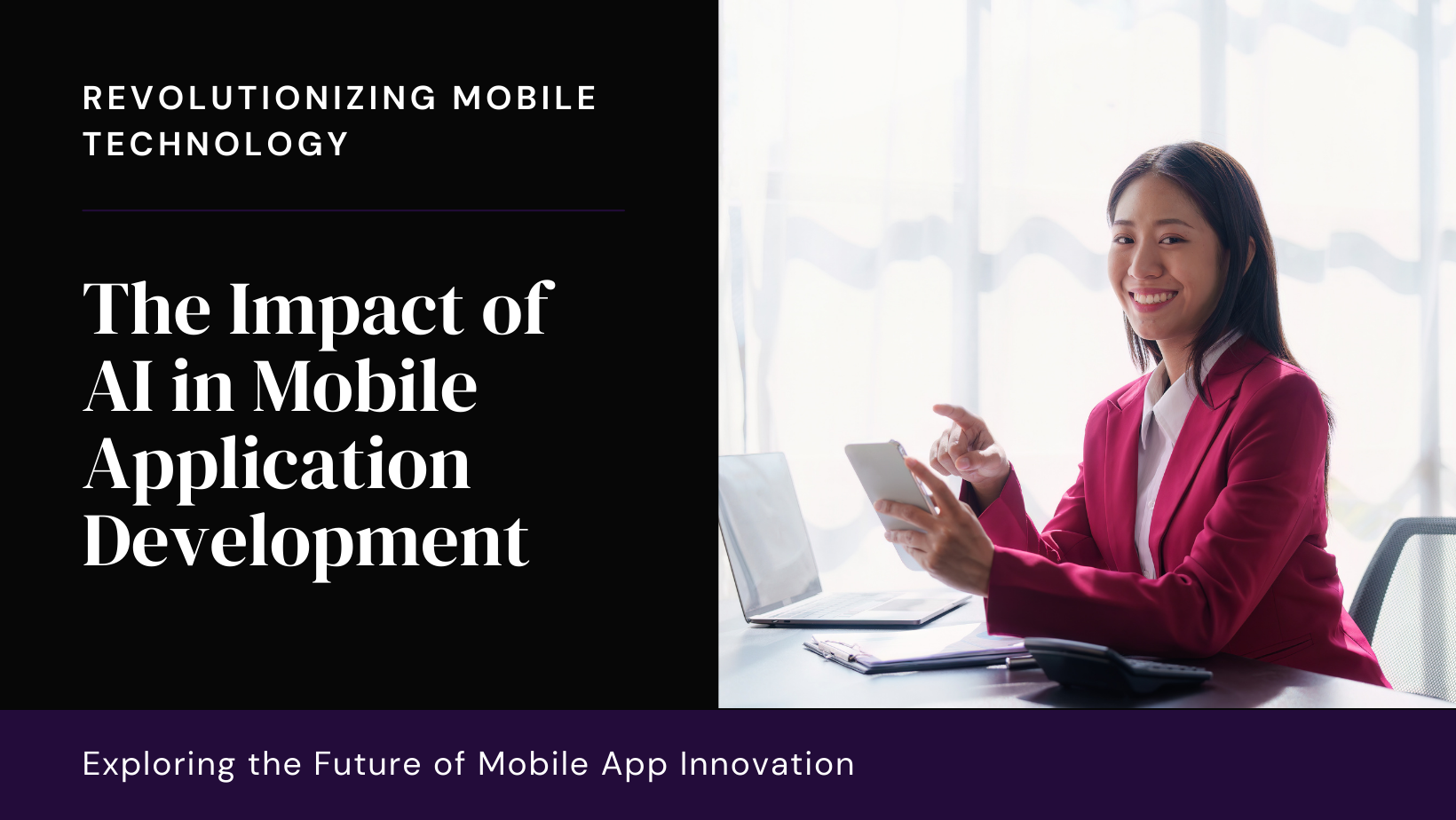Artificial Intelligence (AI) has become a transformative force in various industries, and mobile app development is no exception. The integration of AI in mobile apps has revolutionized the way users interact with technology, enhancing user experience, personalizing content, and automating processes. In this article, we will explore the pivotal role of AI in mobile apps, its benefits, key applications, and future trends.
Understanding AI in Mobile Apps
AI refers to the simulation of human intelligence processes by machines, particularly computer systems. These processes include learning, reasoning, and self-correction. In mobile apps, AI technologies such as machine learning, natural language processing, and computer vision are employed to create intelligent applications that can understand, learn, and respond to user behavior and preferences.
Benefits of AI in Mobile Apps
1. Enhanced User Experience
AI significantly enhances user experience by making mobile apps more intuitive and user-friendly. Features such as voice assistants, personalized recommendations, and predictive text are examples of AI-driven functionalities that improve user interaction and satisfaction.
2. Personalization
AI enables mobile apps to offer personalized experiences by analyzing user data and behavior. This personalization can be seen in recommendations for products, content, and services tailored to individual preferences. Apps like Spotify, Netflix, and Amazon leverage AI to provide customized experiences that keep users engaged.
3. Automation
AI automates repetitive tasks, freeing up time and resources for more complex activities. For instance, AI-powered chatbots handle customer inquiries, appointment scheduling, and basic troubleshooting, providing instant responses and improving customer service efficiency.
4. Predictive Analytics
AI algorithms analyze large datasets to predict future trends and behaviors. In mobile apps, this capability is used for various purposes, such as forecasting user needs, optimizing content delivery, and enhancing marketing strategies. Predictive analytics helps businesses make informed decisions and stay ahead of the competition.
5. Improved Security
AI enhances mobile app security by detecting and preventing fraudulent activities. Machine learning algorithms analyze user behavior patterns to identify anomalies and potential security threats. Biometric authentication methods, such as facial recognition and fingerprint scanning, also leverage AI to ensure secure access to mobile apps.
Key Applications of AI in Mobile Apps
1. Voice Assistants and Chatbots
Voice assistants like Siri, Google Assistant, and Alexa have become integral parts of mobile apps, providing hands-free interaction and performing tasks based on voice commands. AI-powered chatbots are also widely used in customer service, offering instant support and resolving queries efficiently.
2. Personalized Recommendations
AI-driven recommendation systems analyze user preferences and behavior to suggest relevant content, products, or services. Streaming platforms like Netflix and music apps like Spotify use AI to curate personalized playlists and recommendations, enhancing user engagement and retention.
3. Image and Video Recognition
AI-powered image and video recognition technologies are used in various mobile apps, from social media platforms to e-commerce. Apps like Instagram and Pinterest utilize AI to recognize and tag images, while e-commerce apps use it for visual search, allowing users to find products by uploading images.
4. Natural Language Processing (NLP)
NLP enables mobile apps to understand and interpret human language. This technology is used in language translation apps, voice-to-text applications, and sentiment analysis tools. Apps like Google Translate and Grammarly leverage NLP to provide accurate translations and grammar corrections.
5. Augmented Reality (AR) and Virtual Reality (VR)
AI plays a crucial role in enhancing AR and VR experiences in mobile apps. AR apps like Pokemon Go and IKEA Place use AI to overlay digital information on the real world, creating immersive experiences. VR apps leverage AI to create realistic simulations and interactive environments.
6. Healthcare and Fitness
AI-powered mobile apps in the healthcare and fitness industry provide personalized health recommendations, monitor vital signs, and predict potential health issues. Apps like MyFitnessPal and Fitbit use AI to track user activity, analyze health data, and offer customized fitness plans.
Future Trends in AI for Mobile Apps
1. Advanced Personalization
As AI algorithms become more sophisticated, the level of personalization in mobile apps will continue to advance. Future apps will provide hyper-personalized experiences by analyzing real-time user data and adapting content, services, and interactions accordingly.
2. AI-Powered Augmented Reality
AI will further enhance AR capabilities in mobile apps, enabling more accurate object recognition, real-time translation, and interactive experiences. This will open new possibilities in gaming, education, retail, and other industries.
3. Enhanced Security Features
AI-driven security measures will become more robust, with advancements in biometric authentication, fraud detection, and threat prevention. Mobile apps will leverage AI to identify and mitigate security risks in real-time, ensuring a safer user experience.
4. Integration with IoT
The integration of AI with the Internet of Things (IoT) will lead to smarter and more interconnected mobile apps. AI will enable seamless communication between devices, allowing for automated processes, predictive maintenance, and improved efficiency in various sectors.
5. Emotional Intelligence
AI’s ability to understand and respond to human emotions will improve, leading to more empathetic and responsive mobile apps. Emotional intelligence in AI will enhance user interactions, making apps more relatable and engaging.
6. Voice and Gesture Recognition
Advancements in voice and gesture recognition technologies will make mobile apps more accessible and user-friendly. AI-powered voice assistants and gesture-based controls will become more accurate, allowing for intuitive and hands-free interactions.
7. AI-Driven Content Creation
AI will play a significant role in automating content creation for mobile apps. From generating personalized news feeds to creating marketing content, AI algorithms will streamline content production, saving time and resources.
Conclusion
The integration of AI in mobile apps has revolutionized the way we interact with technology, offering enhanced user experiences, personalized content, and improved efficiency. As AI technologies continue to evolve, the capabilities of mobile apps will expand, providing more intelligent, secure, and engaging experiences for users. By understanding the benefits, applications, and future trends of AI in mobile apps, developers and businesses can leverage this technology to create innovative solutions that meet the needs of their users and stay ahead in a competitive market.







